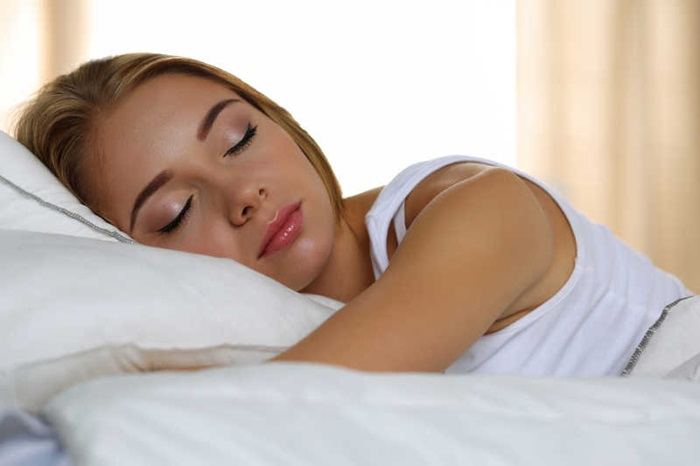Sleep is often called the “third pillar” of health, but many people still struggle to get the recommended amount. In fact, studies show that one-third of Americans aren’t getting enough sleep, even though the American Academy of Sleep Medicine advises that adults should aim for seven or more hours of rest each night. Whether it’s stress, endless scrolling on your phone, or racing thoughts, a peaceful night of sleep seems out of reach for many. But before you reach for sleep aids, there’s another approach worth trying: improving your sleep hygiene.
What Is Sleep Hygiene and Why Is It Important?
Sleep hygiene refers to the habits, behaviors, and environmental factors that help you get healthy, restful sleep. Jennifer L. Martin, PhD, a leading sleep expert, explains, “Sleep hygiene is a set of general guidelines that all people should follow for healthy sleep.” Consistently practicing good sleep hygiene can not only help you fall asleep faster, but also improve the quality and duration of your rest.
Joseph Dzierzewski, PhD, from the National Sleep Foundation, adds, “Sleep health is crucial for our overall well-being, affecting everything from our immune system to decision-making.” Chronic sleep deprivation can lead to short-term effects like fatigue, irritability, and memory problems, as well as long-term risks such as heart disease, stroke, and diabetes. With good sleep hygiene, you can significantly reduce these risks.
Key Components of Good Sleep Hygiene
Stick to a Consistent Sleep-Wake Schedule
Consistency is key. Going to bed and waking up at the same time every day, even on weekends, helps train your internal clock and improves both the quality and duration of your sleep. While consistency is important, it’s equally crucial to ensure you’re getting enough sleep, so don’t sacrifice sleep duration for the sake of a rigid schedule.
Create a Relaxing Bedtime Routine
To wind down before bed, engage in relaxing activities that suit your preferences. Whether it’s reading, yoga, or taking a warm bath, the goal is to signal to your body that it’s time to sleep. A consistent routine can help ease the transition from day to night.
Optimize Your Sleep Environment
Your bedroom should be quiet, dark, and cool. Consider using blackout curtains, white noise machines, or even sleep masks to create an ideal environment. Also, check your mattress and pillows to ensure they are comfortable and supportive.
Mind Your Diet
Spicy foods, heavy meals, and caffeine late in the day can interfere with sleep. While alcohol might help you fall asleep faster, it can disrupt sleep quality, leading to fragmented rest. Avoid heavy meals and stimulants in the hours leading up to bedtime.
Exercise Regularly
Physical activity can improve sleep efficiency and duration. However, it’s best to avoid exercising right before bed, as it may make it harder to fall asleep. Aim for 30 minutes of moderate exercise in the morning or afternoon for optimal benefits.
Get Sunlight Exposure
Our circadian rhythm is heavily influenced by natural light. Spend time outdoors, especially in the morning, to help regulate your internal clock and improve sleep quality.
Limit Screen Time Before Bed
The blue light emitted by phones, tablets, and computers can suppress melatonin, the hormone that helps us sleep. Try reducing screen time at least 30 minutes before bed and engage in analog activities like reading, journaling, or listening to calming music.
Sleep Hygiene and Sleep Disorders
While sleep hygiene can significantly improve the quality of your rest, it’s not a cure-all for sleep disorders such as insomnia or sleep apnea. For those with chronic conditions, Dr. Martin recommends pairing good sleep hygiene with appropriate treatments, like Cognitive Behavioral Therapy for Insomnia (CBT-I), for more effective results.
How to Get Started with a Sleep Hygiene Routine
If you’re ready to improve your sleep, begin by identifying your current sleep challenges and creating a plan to address them. Start small, make realistic changes, and be patient as you track your progress. If you don’t see improvement after a couple of weeks, it might be time to consult with a healthcare professional.
FAQs
1. What are signs of poor sleep hygiene?
Common signs include difficulty falling asleep, waking up frequently during the night, or never feeling refreshed in the morning.
2. What should I do if I can’t fall asleep?
If you can’t fall asleep within 20-30 minutes, get out of bed and do something relaxing until you feel sleepy. Avoid using bright lights or screens during this time.
3. Is it okay to take sleep aids?
Sleep aids should be used under the guidance of a doctor, especially if you have a history of sleep disorders. A solid sleep hygiene routine may also help reduce your dependence on sleep aids.
4. How can I improve my sleep environment?
Make your bedroom quiet, cool, and dark. Consider blackout curtains, a comfortable mattress, and white noise machines for a restful atmosphere.
5. When should I see a doctor about my sleep problems?
If you’ve been struggling with sleep for weeks or months despite practicing good sleep hygiene, it’s time to consult a doctor. Keeping a sleep diary can help your doctor better understand your sleep patterns.
Conclusion
Improving your sleep hygiene is a practical and effective way to enhance your sleep quality and overall health. By maintaining a consistent schedule, creating a calming bedtime routine, and optimizing your environment, you can achieve more restful, restorative sleep. If sleep problems persist, seek professional help to address underlying issues.
Read more:
- Top 5 Magnesium Supplements For Better Sleep And Muscle Relief
- How To Combat Nighttime Anxiety: Expert Tips For Better Sleep
- Deep Sleep’s Impact On Memory: New Research Highlights Importance


